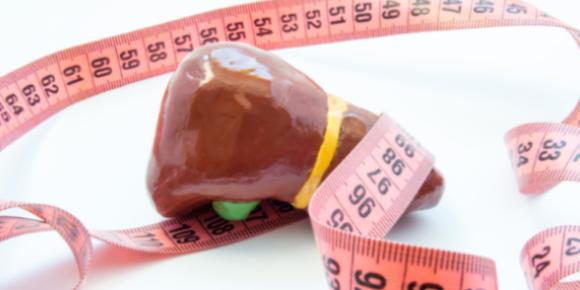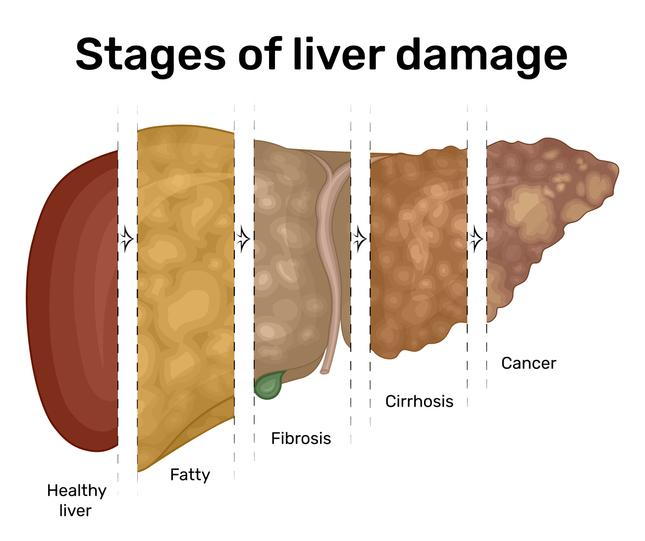
Though Non-Alcoholic Fatty Liver Disease may not be a condition you have ever heard about, yet it's affecting people around the world at increasing rates. According to the National Institutes of Health, Non-Alcoholic Fatty Liver Disease (NAFLD) has a global prevalence of about 25%: "Incidence is increasing with rising levels of obesity, type 2 diabetes, and metabolic syndrome, and NAFLD is predicted to become the leading cause of cirrhosis requiring liver transplantation in the next decade."
What Is Non-Alcoholic Fatty Liver Disease?
While many people associate liver disease exclusively with damage due to excess alcohol consumption, excess drinking is not the only way a liver can become damaged. When too much fat is stored in liver cells, the result is Non-Alcoholic Fatty Liver Disease (NAFLD), a disease that affects millions around the globe.
What Causes Non-Alcoholic Fatty Liver Disease?
Given the name of the disease, it may be logical to assume that NAFLD is caused by a diet high in fat. However, the truth is more complicated.
The exact causes of NAFLD aren't well understood. There appears to be a connection between the disease and insulin resistance. When your body develops insulin resistance, it means your cells don't respond to insulin the way they should. As a result, too much fat ends up in the liver. This can lead to inflammation and liver scarring. (Healthline)
While insulin resistance is the highest risk factor for NAFLD, poor diet does factor into the equation as well.
Other risk factors can include:
High cholesterol
High triglyceride levels
Use of corticosteroids
Use of certain cancer medications
Diabetes

What Are Some Signs to Watch For?
If you're concerned about the possibility that you may develop (or may have already developed) NAFLD, it's important to know the common signs of the disease so that you can seek medical attention.
Unfortunately, in the early stages of the disease, there are sometimes no discernable symptoms.
As the disease progresses, NAFLD symptoms may include:
Pain in the upper right section of the abdomen
Yellowing of the skin and eyes
Swelling of the belly
Fluid retention
Mental fog
Fatigue
While these symptoms can sometimes find their roots in other medical conditions, it's important that if you are experiencing any of them (particularly if you have risk factors for NAFLD), you schedule an appointment to see a doctor immediately.
How Is Non-Alcoholic Fatty Liver Disease Diagnosed?
When doctors suspect you may have NAFLD, they will follow a specific procedure as they work toward an official diagnosis.
Step One: Medical History
As in most cases, doctors will start by taking a detailed medical history. Your healthcare professional may ask you for information such as:
Family health
Lifestyle choices
Alcohol intake
Regular diet
Past medical issues
Step Two: Physical Exam
After checking in on the basics such as your height and weight, your provider will assess the following:
Check for signs of an enlarged liver
Check for observable physical signs of insulin resistance (darkened patches over the elbows, knuckles, or knees)
Check for signs of Cirrhosis
Tests may be ordered including blood work and imaging tests. Based on these results a liver biopsy may be recommended.
Step Three: Diagnosis and Treatment Options
If you are indeed diagnosed with NAFLD, your provider will explain how they reached their diagnosis before discussing treatment options with you.
As we discussed already, there are currently no medications approved by the FDA to treat FAFLD; however, that doesn't mean there are no effective ways to treat your conditions.
Diet and exercise
Vitamins and supplements
Alternative treatments
Herbal remedies
Is This Type of Liver Disease Reversible?
As of right now, there are currently no FDA-approved medications to treat NAFLD. Fortunately, however, studies show that the fat, inflammation, and scar tissue that damage the liver due to NAFLD can be reversed.
Seeking a swift diagnosis, following your provider’s orders, and getting your diet under control can be key to treating NAFLD.
The Bottom Line
Though NAFLD symptoms can be reversed, it is nevertheless not a disease to take lightly.
Non-Alcoholic Fatty Liver Disease affects millions of people around the world every year, and with cases on the rise, it's important to stay active, eat a healthy diet, watch for symptoms of NAFLD, consult medical professionals, and follow up on any recommended treatment measures.
Our Gastroenterologist In Wausau, WI Are Here To Help
As with any serious disease, the chance at an early diagnosis can literally change your life.
Our board-certified gastroenterologists are here to help you get to the bottom of your symptoms. Please call us at (877) 442-7762 to learn more.
Contact us to schedule your appointment at GI Associates-Wausau or one of our outreach clinic locations.
